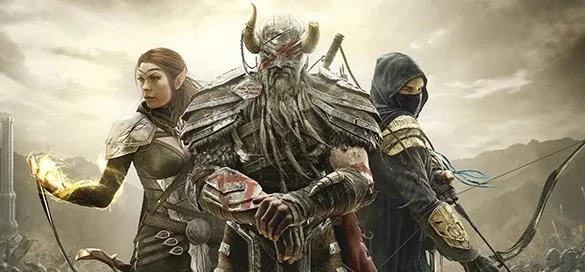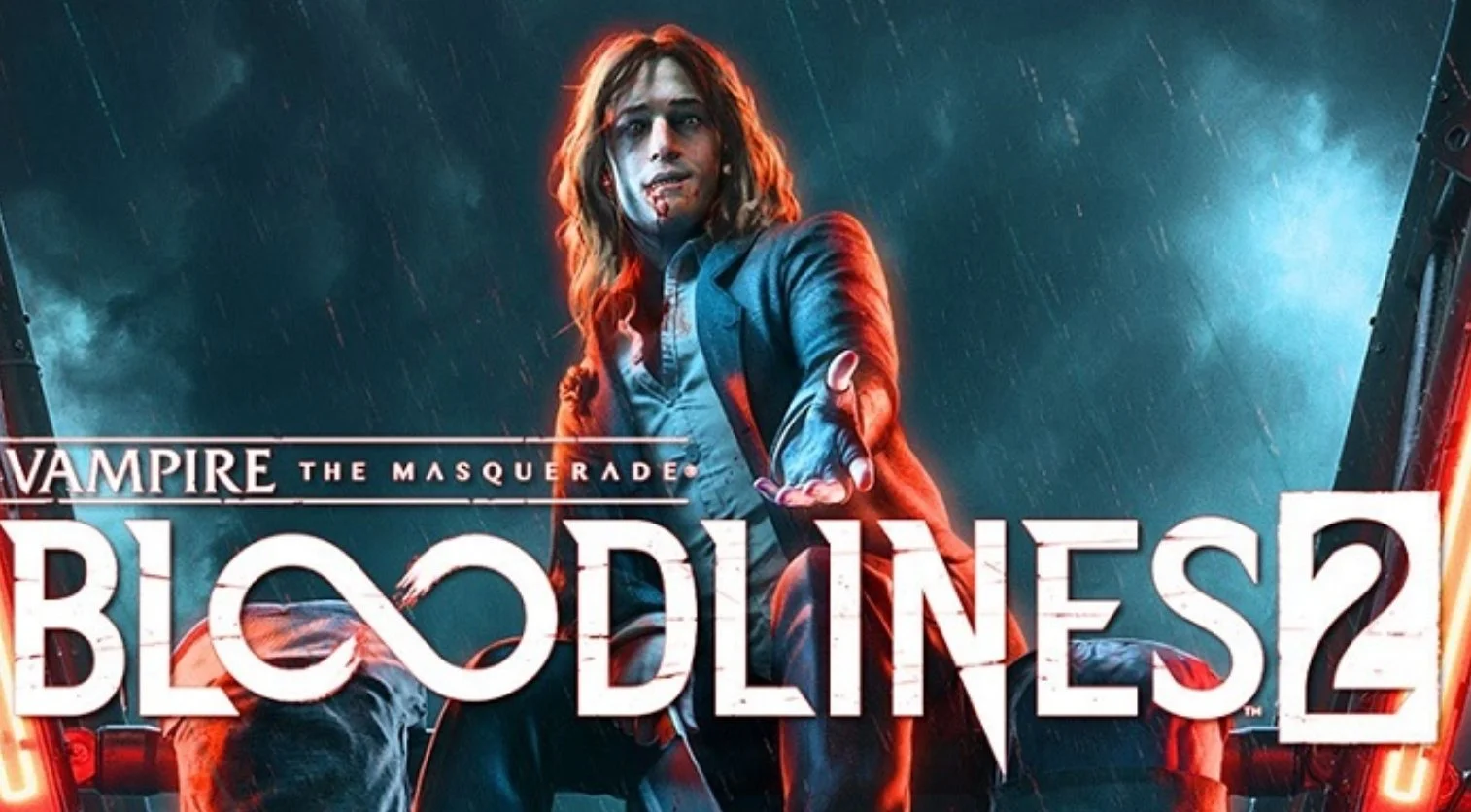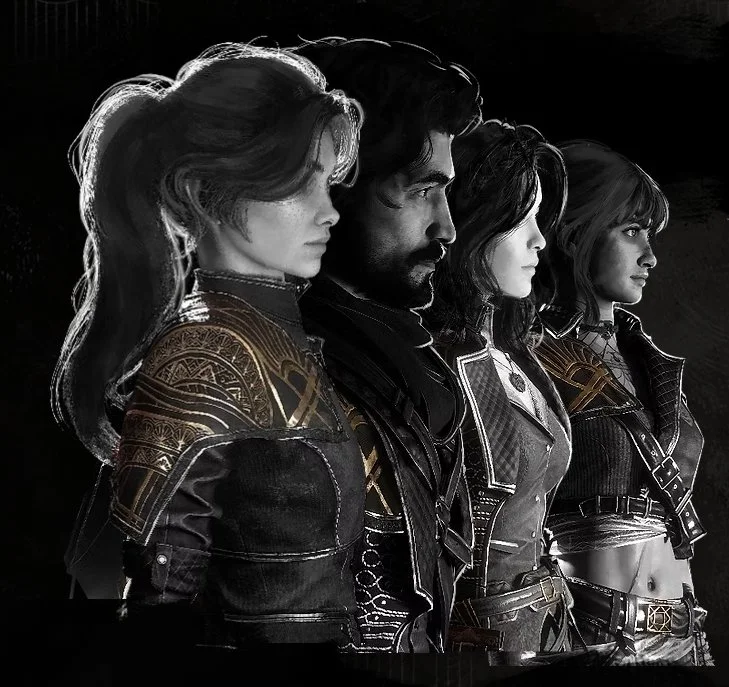From Sage to Sidekick: Has the Wise Old Man of Jungian Mythology Transformed into the 'Pint-Sized Pal' of Video Games?
The archetype of the wise old man—an ageless figure embodying wisdom, guidance, and mentorship—has been a staple in myth, literature, and psychology, most famously cataloged by Carl Jung. Traditionally, this character would guide the hero through trials, impart hard-earned wisdom, and represent humanity’s collective understanding of knowledge and transcendence. Think Merlin guiding King Arthur, Gandalf leading the Fellowship, or Obi-Wan Kenobi introducing Luke to the Force. However, in the quirky, frenetic, and often explosive world of video games, something peculiar has happened. Instead of sagacious sages, we frequently encounter a different kind of guide: the pint-sized pal. This tiny, often chatty, frequently humorous companion might not look like a source of timeless wisdom, yet they function similarly, shaping the player’s journey with hints, lore, and moral nudges.
Characters like Navi from The Legend of Zelda, Claptrap from Borderlands, and Morgana from Persona 5 seem miles away from the wise old man archetype, yet they fulfill a similar role in surprising, modernized ways. So, how did Jung’s wise elder turn into a floating fairy, a talking cat, or even a sassy AI hologram? Let’s dive into this transition, exploring how the classic mentor has morphed into the lovable (if slightly annoying) “pint-sized pal.”
A Brief Look at the Wise Old Man Archetype
In Jungian psychology, the wise old man represents an embodiment of knowledge, offering wisdom to the hero when they face crossroads or existential crises. This character might appear when the hero is unsure, lost, or grappling with self-doubt, symbolizing guidance from a place beyond mere personal experience. This archetype allows the protagonist—and, by extension, the player or reader—to explore deeper themes of self-knowledge and transcendence.
Traditional wise men, like Merlin or Gandalf, exude an aura of power and mystery. They’re not usually companions on the journey but figures that step in at key moments, facilitating the hero’s self-discovery. In video games, however, the mentor figure’s constant presence is often necessary due to gameplay requirements. This new dynamic changes the way guidance is dispensed, resulting in characters who may not command the same gravitas but instead provide useful hints, humorous banter, and companionship. In this way, Jung’s archetype adapts into something more accessible, user-friendly, and—often—pint-sized.
Enter the Pint-Sized Pal: Evolving Mentorship for the Digital Era
In many games, these smaller-than-life mentors embody a playful, more accessible approach to guidance. Their tiny forms, chatterbox personalities, and occasional comic relief help to smooth out the darker or more complex parts of a game, guiding without overwhelming. Let’s look at some notable examples.
Navi from The Legend of Zelda: Ocarina of Time
Perhaps one of the most iconic examples, Navi is a tiny, glowing fairy who accompanies Link, the protagonist, on his quest. Instead of towering above him with a long beard and staff, Navi is a small, hovering ball of light with wings. While Navi’s famous catchphrase—"Hey! Listen!"—might seem trivial, it serves a crucial purpose. By pulling the player’s attention to details and giving reminders, Navi embodies the wisdom archetype in a uniquely functional way. She assists with puzzle solutions, enemy weaknesses, and navigational cues, albeit in a high-pitched, almost nagging voice.
Navi’s presence and proximity to the player at all times reflect a digital adaptation of the wise elder, reshaping it as a more omnipresent, accessible companion. In doing so, she provides not only functional aid but also an emotional anchor for players who, through Link, face dungeons, dark forests, and more without a traditional mentor.
Claptrap from Borderlands
Claptrap, the frenetic, chatterbox robot from Borderlands, takes the role of companion and guide to a humorous extreme. While he doesn’t offer profound wisdom or sage advice, Claptrap’s constant banter, quest assignments, and occasional useful hints guide players through the game’s chaos. He pokes fun at the player and the game’s mechanics, serving as both a guide and comic relief.
In Claptrap, the wise elder archetype has been distilled into satire. Where traditional mentors would emphasize growth and resilience, Claptrap reflects a more modern cynicism. Yet, in his own strange way, he still serves as a mentor, helping players navigate a brutal, anarchic world and reminding them to approach the journey with humor.
Tatl from The Legend of Zelda: Majora’s Mask
Tatl, another fairy companion, takes a step beyond Navi’s relatively straightforward guidance by incorporating more personality and backstory. In Majora’s Mask, Tatl is sarcastic and even a bit abrasive, reflecting a new twist on mentorship where guidance isn’t necessarily nurturing. Yet Tatl has an arc, developing empathy and courage alongside Link, and her story adds layers to the guidance she provides.
Where Navi simply helps players navigate, Tatl’s journey mirrors the player's in many ways. Her shift from begrudging ally to true companion allows her to be a more complex guide, intertwining her character growth with the player’s progress. This demonstrates how the archetype has expanded to include elements of narrative depth in addition to functionality.
Morgana from Persona 5
Morgana, the anthropomorphic cat from Persona 5, plays the role of confidant, guide, and moral compass for the player’s alter-ego in the game. While Morgana is undeniably a “pint-sized pal,” he also brings a depth that borders on Jungian wisdom. Morgana’s cryptic knowledge of the “Metaverse” (a supernatural dimension in the game) and his guidance in navigating it reflect the traditional wise elder’s function of introducing the hero to the “unknown.”
Morgana also frequently advises the player on both mundane and moral matters. From self-care tips to encouragement in moments of doubt, Morgana embodies a modernized archetype, imparting wisdom that is practical rather than mystical. He offers a holistic approach to guidance, blending light-hearted companionship with advice that impacts the player’s journey both inside and outside the game.
Ghost from Destiny
Voiced by actors by Nolan North who replaced Peter Dinklage, Ghost serves as a voice of reason, a supplier of lore, and a practical helper who illuminates dark places, unlocks doors, and comments on the mysteries of the Destiny world. Although small, Ghost has a wisdom and philosophical depth that aligns him with the wise elder archetype, albeit in a way that’s digitally adapted for a futuristic, action-packed world.
Cortana from Halo
While she may appear as a holographic AI, Cortana is arguably one of the most complex iterations of the wise elder archetype in modern gaming. Paired with the super-soldier Master Chief, Cortana brings not only technological knowledge but also a nuanced moral perspective. She often provides hints, assists with enemy strategies, and unlocks encrypted systems, all while pushing Master Chief toward self-awareness, purpose, and even doubt.
Cortana's journey in Halo 4 reflect the wisdom archetype’s darker themes of mortality and sacrifice. By blending mentorship with emotional intimacy, Cortana reveals a deeper, modern take on Jung’s archetype, pushing the wise guide beyond the constraints of humor or simplicity into a space of genuine pathos. In a sense, Cortana represents how the wise old man archetype can live on, though it now appears as a digital companion who, paradoxically, wrestles with her own existential questions.
Why the Shift? Changing Player Expectations and Cultural Evolution
The transformation of the wise old man into the pint-sized pal isn’t just a matter of convenience; it reflects evolving player expectations and a cultural shift toward relatability. Video game players, often thrust into vast and complex digital worlds, require guidance that feels immediate, accessible, and sometimes even a bit humorous to lighten the intensity.
In addition, these smaller, quirkier companions reflect our current fascination with characters who are flawed and relatable. Just as Jung believed that archetypes adapt based on the collective psyche, our media has shifted to prefer characters who, despite their role as “mentors,” are not perfect and often struggle alongside us.
Player Autonomy and Open-World Design
Modern games often prioritize player freedom, letting players explore open worlds, choose their own paths, and experiment. As a result, many players want guidance that feels supportive without restricting their autonomy. The pint sized guide fits naturally in this space: they offer hints and nudges rather than strict instructions, helping players stay on track without imposing a single “right” path. Fi in The Legend of Zelda: Skyward Sword and Morgana in Persona 5 provide clues without forcing players’ hands, allowing them to explore at their own pace while feeling supported.
Enigmatic Storytelling
Pint sized guides also invite players into a world of mystery. Unlike the Wise Old Man, who might plainly explain a quest’s purpose, today’s pint sized guides encourage players to interpret subtleties, clues, and cryptic phrases. This style of guidance encourages deeper player involvement, as players are motivated to uncover the true intentions and the world’s hidden meanings on their own.
Character-Driven Gameplay
Games today are more character-driven than ever, and pint sized guides offer an ideal way to enhance this experience. Rather than simply dispensing advice, these characters develop personalities, quirks, and even agendas of their own. Morgana, the cat-like companion in Persona 5, is far more than a guide—he’s a character with his own ambitions, vulnerabilities, and arc. Morgana brings both humor and emotional support, making him feel less like a mentor and more like a companion on the protagonist’s journey. The sense that these guides have their own lives and struggles makes them more relatable and helps players forge a stronger emotional connection.
The Emotional Appeal of Pint Sized Guides
One reason the pint sized guide archetype resonates so well is the emotional bond they create with players. These guides are often small, colourful, and emotionally expressive. They don’t have the authority or wisdom of the Jungian Wise Old Man but offer a sense of companionship that feels more accessible. For example, Navi’s simple “Hey, listen!” may have been annoyingly repetitive, but it also gave players the feeling that someone was constantly by their side.
The vulnerability of these pint sized guides often makes players feel protective or even invested in their well-being. This is especially true in games where the guide’s own journey is closely tied to the player’s. Morgana struggles with his identity and role in the team, allowing players to relate to him and feel connected on a more personal level. Through these guides, players don’t just learn the game; they gain a friend, a confidant, or even a co-conspirator in their journey.
Simply Put: From Sage to Sidekick, Wisdom Reimagined
In the realm of video games, Jung’s wise old man archetype has transformed, becoming an ever-present companion—often smaller than life but full of personality, humor, and guidance. While these pint-sized pals may not have long beards or offer esoteric teachings, they fulfill a similar role, grounding players in the game world and guiding them through their hero’s journey. Whether through the chirps of Navi, the sardonic quips of Claptrap, or the philosophical reflections of Morgana, these characters remind us that wisdom isn’t always towering and grand. Sometimes, it’s as small as a fairy’s whisper, a cat’s meow, or a hologram’s invisible touch.
In this way, video games have modernized the wise elder, transforming him from an imposing sage to a quirky friend, whose size may have shrunk but whose wisdom, in its own unique form, remains timeless.








